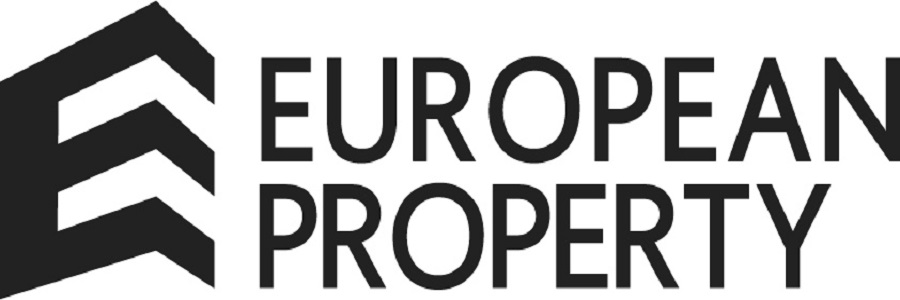We take a comprehensive look at House Sales Europe.
The European real estate market is a dynamic and ever-evolving landscape, shaped by economic factors, social trends, and technological advancements. If you’re considering buying or selling a house in Europe, it’s essential to stay informed about the latest trends shaping the market. In this blog post, we’ll take a closer look at some of the key trends for house sales in Europe in 2023
Impact-Site-Verification: 5d2c3c2c-a64d-40e7-9909-5bac144a94db
1. Sustainable and Eco-Friendly Homes
One of the prominent trends in European real estate is the growing demand for sustainable and eco-friendly homes. Buyers are increasingly interested in properties that incorporate green building practices, energy-efficient systems, and eco-conscious design elements. This trend aligns with Europe’s commitment to reducing carbon emissions and promoting environmental sustainability.
2. Urban-to-Suburban Shift
The COVID-19 pandemic has accelerated the urban-to-suburban migration trend. Many European cities have seen increased interest in suburban and rural areas as remote work becomes more common. This shift has driven demand for homes with larger outdoor spaces, home offices, and proximity to nature.
3. Technological Advancements
Technology continues to transform the house sales process in Europe. Virtual tours, 3D modeling, and AI-driven property matching are becoming standard tools for both buyers and sellers. Online platforms are streamlining transactions, making it easier to search for, view, and purchase homes.
4. Rising Property Prices
While property prices in Europe have experienced fluctuations, many regions have seen consistent price growth in recent years. This has posed challenges for first-time buyers, emphasizing the importance of financial planning and budgeting. See Berlin real estate for example
Real estate remains an attractive investment in Europe, with rental properties offering potential for steady income. Popular investment destinations include cities with strong economies and vibrant tourism sectors.
6. Regulatory Changes
Different European countries have introduced various regulations impacting property transactions, from tax incentives for first-time buyers to stricter rental regulations. Staying informed about local laws and regulations is essential for a smooth house sale process.
7. Sustainability Certifications
Green certifications like LEED and BREEAM are gaining importance in the European housing market. Buyers are increasingly looking for homes with these certifications, as they provide assurance of energy efficiency and sustainability.
8. Pandemic-Driven Adaptations
The pandemic has influenced housing trends in unexpected ways. Features like home gyms, dedicated home offices, and outdoor entertainment areas have become more desirable due to changing lifestyles and work-from-home arrangements.
As the European house sales market evolves, staying informed about these trends can be instrumental in making informed decisions as a buyer or seller. Whether you’re seeking an eco-friendly home, considering a move to the suburbs, or navigating changing regulations, understanding these trends will help you navigate the market effectively. Remember to consult with local experts and real estate professionals for personalized guidance tailored to your specific goals and needs. Europe’s real estate market is diverse and dynamic, offering opportunities and challenges that can be explored with careful consideration and planning. Latest listings of House Sales Europe
Rental Market Europe
Frequently Asked Questions About House Sales in Europe
Are you considering buying or selling a house in Europe? The European real estate market can be diverse and complex. To help you navigate the process effectively, here are some frequently asked questions (FAQs) about house sales in Europe:
1. What are the current market conditions in Europe for house sales?
- Market conditions can vary widely by country and even within cities. It’s essential to research the specific region you’re interested in to understand current market conditions, including supply, demand, and pricing trends.
2. Are there restrictions on foreigners buying property in Europe?
- Many European countries allow foreigners to buy property, but regulations can differ. Some countries have restrictions on non-resident buyers, while others offer incentives to attract foreign investors. It’s crucial to research the rules in your chosen country.
3. How do I find a reputable real estate agent in Europe?
- Seek recommendations from local expatriates, research online reviews, and ask for references. Choose an agent who is knowledgeable about the local market and has a good track record.
4. What is the process for buying a house in Europe?
- The process can vary by country, but generally, it involves finding a property, making an offer, conducting due diligence, signing a purchase agreement, and completing the sale through a notary or legal professional.
5. What are the additional costs associated with buying a house in Europe?
- In addition to the purchase price, you may need to budget for transaction costs, including property transfer taxes, notary fees, legal fees, and agent commissions. These costs can vary significantly by location.
6. How does financing work for foreign buyers in Europe?
- Foreign buyers often have access to local financing, but the terms and requirements may differ from those for residents. It’s advisable to consult with local banks and financial institutions for options and eligibility criteria.
7. Are there any special considerations for buying historic or heritage properties in Europe?
- Historic properties may come with restrictions on renovations and repairs to preserve their heritage value. Be sure to understand these regulations before purchasing such a property.
8. What are the tax implications of buying and owning property in Europe?
- Taxation on property varies widely across Europe. Research the tax laws in your chosen country regarding property taxes, capital gains tax, and any incentives or deductions available to homeowners.
9. How do I negotiate the price of a property in Europe?
- Negotiation practices can vary, but it’s common to make an initial offer and negotiate with the seller. Hiring an experienced real estate agent can be invaluable during this process.
10. What should I know about property maintenance and management in Europe?





